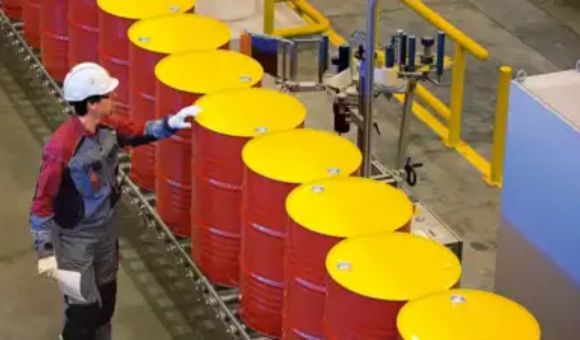In the dynamic landscape of global oil trade, 2023 witnessed an unprecedented surge in the European Union’s imports of refined oil products from India. This surge coincided with a remarkable uptick in New Delhi’s imports of Russian crude oil, marking a significant shift in the geopolitical and economic currents.
A Pivotal Year for Oil Trade
Last year, India emerged as the world’s leading importer of Russian crude oil, a staggering 140% increase from 2022, averaging 1.75 million barrels per day. Simultaneously, the European Union experienced a surge of 115% in refined oil product imports from India, reaching 231,800 barrels per day, the highest figures in the past seven years and quite possibly an all-time high.
This intriguing interplay of global oil dynamics can be attributed to India’s strategic stance in the face of the Ukraine war, maintaining robust ties with Moscow while actively seeking closer defense and trade partnerships with Western nations.

The Two-Fold Impact
Kpler’s lead analyst, Matt Smith, sheds light on the multifaceted impact of this oil trade surge. India strategically availed itself of affordable Russian crude, enabling its refineries to refine the oil and subsequently sell the refined products in the European market. The latter, facing a void due to sanctions on Russian materials, eagerly paid a premium for these refined products—creating a symbiotic relationship that deftly navigated the geopolitical challenges.
The Jamnagar Refinery: A Key Player
One notable example illustrating this intricate dance of global oil trade is the Jamnagar Refinery on India’s western coast. Owned by Reliance Industries, this refinery played a pivotal role, receiving 34% of its crude oil imports from Russia, totaling 400,000 barrels per day. Notably, 30% of the refinery’s exports found their way to Europe, emphasizing the region’s dependence on the global oil market.
Unraveling the Complexities
Oil trade tracking companies emphasize the challenges in distinguishing refined products’ origin once they have been processed in another country. Despite these challenges, tracking crude oil imports and the subsequent export destinations of refined products provide valuable insights. The complexities of the global oil market are epitomized by Russia’s significance as a key player, deterring the complete eradication of its supply to prevent destabilizing price spikes.
EU Countries and the Intricacies of Refined Product Imports
In 2023, approximately 20 of the 27 EU countries imported refined oil products from India. The Netherlands led the pack, constituting 24% of the total volume, followed closely by France at 23%. Romania, Italy, and Spain accounted for 12%, 11%, and 11% respectively. Additionally, Germany and Belgium received refined products such as gasoline, jet fuel, and diesel, each contributing 7% to the intricate web of global oil trade.
The EU’s Delicate Balancing Act
As Mr. Smith aptly notes, the European Union has been “walking a tightrope,” striving to curtail funding to the Kremlin while ensuring a steady flow of Russian supply to prevent an economically crippling price spike. This delicate balancing act reflects the intricate dance between geopolitical tensions and economic pragmatism.
Conclusion: Navigating Global Oil Dynamics
The year 2023 witnessed a remarkable confluence of geopolitical tensions and economic interests in the global oil trade. India’s strategic approach to Russian crude and the European Union’s intricate dance to secure its energy needs underscore the complexities of the current landscape. As we navigate these dynamics, it becomes evident that the global oil market is not merely a transactional space but a stage where nations perform a delicate dance of interests.


